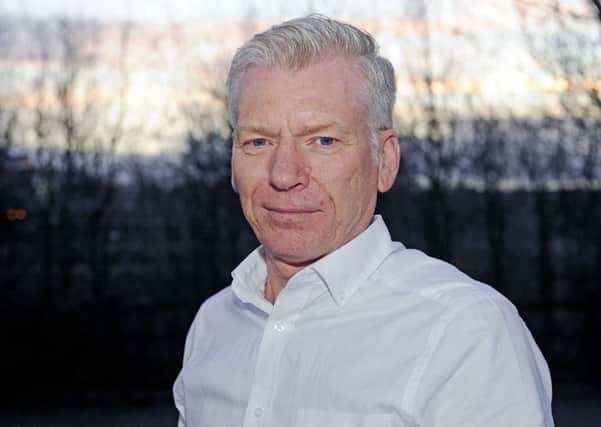Unions across Falkirk disrict fight off negative portrayal in 2019


Job losses, businesses closing down or industrial action leading to the loss of vital products or services often feature in such articles.
The word strike used to appear with a lot more frequency in the media than it does today and, rightly or wrongly, over the years unions have become associated with the images of workers downing tools and heading out to the picket lines.
Advertisement
Hide AdAdvertisement
Hide AdHowever, numbers of days lost to industrial action is at an all-time low and Kevin Robertson, vice chairman of Falkirk Council’s branch of Unite, claims unions are not against this decrease because industrial action and strikes are always seen as the last resort.
He said: “Too many times in the past when a union has been named in headlines it’s all been negative. Going out on strike is the last thing we want to do – it’s regarded as a failure.
“The company and the workers lose money and the last thing we want in this day and age is for people to lose money. If you have strength in numbers it’s much easier to engage with an employer so you don’t have to strike.”
In the Falkirk area, and more specifically Grangemouth, you only have to look back to 2013 and the Ineos shutdown crisis to see what can happen when a strong union goes up against a powerful company.
Advertisement
Hide AdAdvertisement
Hide AdAt that time industrial action by Unite members led to a threat by Ineos to close its Grangemouth facility for good, with 800 workers potentially losing their jobs.
The decision was later reversed after workers agreed to a survival plan which included a three-year pay freeze, an end to final salary pensions, an end to full-time union convenors on site and a guarantee of no strikes for three years.
Then in April 2017 the company said it was ending collective bargaining at the site, meaning Ineos would no longer officially recognise the union.
Fast forward to October last year and 83 per cent of workers at the Grangemouth plant, from a 78 per cent turnout, voted to reinstate collective bargaining, meaning Unite could once again negotiate on behalf of the workforce.
Advertisement
Hide AdAdvertisement
Hide AdSo unions are back in Ineos and also back in a big way in the Falkirk area, according to the town’s trades union council.
Kevin, who is also a member of Falkirk TUC, said: “There are good employers out there and there are ruthless employers out there. What we are trying to achieve is to show people another side to the story when it comes to trade unions.
“Unions are non-political and apolitical, we are not party led. A trade union’s primary role remains to represent their members on employment issues such as terms and conditions, pay, holidays, pensions, bullying and harassment and health and safety.
“However, these days they also play a much bigger part in civil society. Unions have a shared vision of a prosperous society in which employers and employees work together to build successful businesses and safe, healthy working environments.
Advertisement
Hide AdAdvertisement
Hide Ad“Places where all those who contribute to success receive the rewards, respect and recognition they deserve.”
There are 540,000 trade unionists – that’s three out of every 20 adults of working age – in Scotland, 20 trades union councils and 37 Scottish Trade Union Congress affiliated trade unions.
Increasingly, as well as advice and support, unions now offer members financial benefits that come from joint “buying power” – mortgages, loans, energy provision, insurance products and educational, lifelong learning and training opportunities.
Kevin said: “As the pattern of work in this country changes, so does union membership. More and more people who work part-time, on temporary contracts or agency work are joining.”